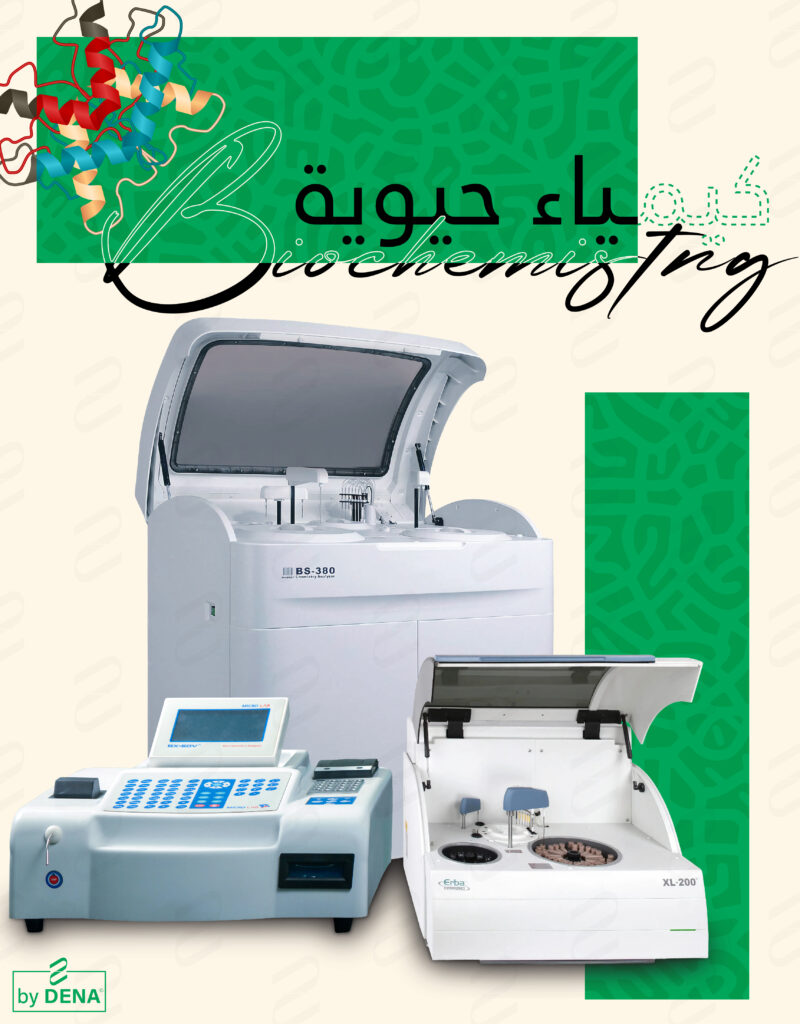A Biochemical Analyzer, also known as a Clinical Chemistry Analyzer, is a vital instrument in medical laboratories used for measuring various chemicals and other characteristics in blood and body fluids. These analyzers have become indispensable in modern clinical diagnostics due to their efficiency, accuracy, and range of tests they can perform. Here are some key aspects of biochemical analyzers:
Types of Biochemical Analyzers
- Fully Automated Analyzers: These are large machines capable of handling a high volume of tests simultaneously and automatically. They require minimal human intervention, making them ideal for large hospitals and commercial laboratories.
- Semi-Automated Analyzers: These are smaller and require more manual intervention but are suitable for smaller laboratories or those with lower test volumes.
- Benchtop Analyzers: Compact and portable, these analyzers are designed for small-scale labs, clinics, or for specific bedside tests.
Key Features and Functions
- Sample Handling: Modern analyzers can handle various sample types, including blood, serum, plasma, urine, and cerebrospinal fluid.
- Test Range: They can perform a wide range of tests, including basic metabolic panels, liver and kidney function tests, lipid profiles, hormone assays, and more.
- Reagent Management: Automated analyzers have systems for storing and handling reagents, which are chemicals used to perform the tests.
- Data Management: Integration with Laboratory Information Systems (LIS) allows for efficient data management, reporting, and electronic medical record integration.
Testing Mechanisms
- Photometric Analysis: This is commonly used for measuring concentrations of analytes based on their ability to produce or change color.
- Electrochemical Detection: Used for electrolyte analysis and specific metabolites like glucose.
- Immunoassay Capabilities: Some analyzers have modules for hormone and drug level testing using immunoassay techniques.
Applications
- Disease Diagnosis: Biochemical analyzers are crucial in diagnosing a range of diseases, from diabetes and kidney dysfunction to liver diseases and hormonal imbalances.
- Therapeutic Monitoring: Monitoring levels of certain drugs and metabolites in the blood to guide treatment decisions.
- Health Screening: Routine health checks often include tests that are performed using these analyzers.
Maintenance and Quality Control
- Regular calibration and maintenance are essential for accurate results.
- Quality control procedures ensure that the analyzer provides reliable and accurate data.
Famous brands of biochemical analyzer devices:
Beckman Coulter AU Series
- Models: AU480, AU680, AU5800
- Features: High throughput, automation, and a broad test menu. Known for their reliability and efficiency, suitable for medium to large laboratories.
Roche Cobas Series
- Models: Cobas c 311, Cobas c 502, Cobas c 701
- Features: Offer a wide range of biochemical tests with high precision and accuracy. These analyzers are modular, allowing for integration with other Roche systems.
Siemens ADVIA Series
- Models: ADVIA 1800, ADVIA 2400
- Features: Known for their advanced photometric technology, offering a wide range of assays and high throughput. They are user-friendly and efficient, suitable for high-volume labs.
Abbott Alinity Series
- Models: Alinity c-series
- Features: Compact design with a broad assay menu. Known for their intuitive interfaces and integration capabilities with laboratory networks.
Thermo Fisher Scientific Arena Series
- Models: Arena 20, Arena 30
- Features: These are often favored in smaller labs due to their compact size and ease of use. They offer a range of essential biochemical tests.
Mindray BS Series
- Models: BS-200, BS-480
- Features: Offer a good balance between performance and cost. Suitable for small to medium-sized laboratories, they provide a wide range of tests with reliable performance.
Key Considerations for Usability
- Throughput: The number of tests the analyzer can perform per hour.
- Test Menu: The variety of biochemical tests available.
- Ease of Use: User interface, software, and maintenance requirements.
- Automation Level: Degree of automation in sample handling, reagent loading, and other processes.
- Footprint: Space requirements in the laboratory.
- Integration: Ability to integrate with laboratory information systems (LIS) for streamlined workflows.
In summary, biochemical analyzers are central to the functioning of clinical laboratories. They provide essential data that aid in the diagnosis, monitoring, and treatment of various health conditions, thereby playing a critical role in healthcare delivery. The choice of a biochemistry analyzer depends on the specific requirements of the laboratory, including test volume, range of tests needed, space availability, and budget. It’s also important to consider the after-sales support and service provided by the manufacturer.
